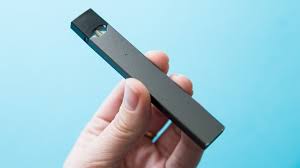Juul Stops Selling Flavored Pods in Retail Stores

Christianna Tran (‘20)
Juul Labs, the e-cigarette manufacturer, announced November 11 that it will stop selling many of its flavored pods in retail stores and put an end to its social media promotion. Juul removed all of its social media accounts in order to stop exposing and attracting teenagers to the company’s products. However, the company has decided keep Twitter but to not use it for product promotion.
The changes by Juul Labs came a month after the Food and Drug Administration (FDA) previously expressed concern for the health of underage teens who have been illegally previously obtaining the e-cigarettes. According to a study by the FDA, vaping has increased 80 percent among high schoolers and 50 percent among middle schoolers since last year. The administration began making statements in early September about the epidemic of youth vaping and then took action against more than 1,300 retailers and 5 major manufacturers for their roles in allowing youth access to e-cigarette products. These actions often included warning letters and fines to retailers for illegally selling e-cigarette products to minors.
The administration has also gone after misleading e-liquids resembling kid-friendly items such as cookies, candy, and juice boxes, blaming the companies for targeting youths. FDA commissioner Scott Gottlieb explained that the agency cannot “allow a whole new generation to become addicted to nicotine.”
As the FDA was investigating Juul’s sales and marketing practices, Juul preemptively announced their “action plan,” a statement posted on the company’s website that explained its future efforts to end the outbreak of teen vaping. Juul intends to stop fulfilling orders from retailers looking to stock its creme, cucumber, fruit and mango flavored Juul pods. Therefore, only mint, menthol and tobacco will be sold in retail stores and the rest of their sweeter, teen-favored flavors will be sold strictly online.
This way, customers must provide their social security number, address, name, and date of birth in order to confirm that they are of age to buy Juul’s products. With this age verification system, only those who are 21 years and older can order from the company’s secure website. However, in Maryland a person 18 years and older with a valid ID can purchase pods in retail stores.
The company, which holds 75 percent of the e-cigarette market in the U.S., has for a long time explained how its goal was to never attract teens into vaping but instead to provide adults who have been previously addicted to nicotine through cigarettes an alternative that allows for fewer toxins. However, the FDA believes that Juul has in fact been attracting teens to their products through their marketing and advertising strategies, teens who will then develop an addiction. The CEO of the company, Kevin Burns, has described one the company’s goal to develop technology that ensures that retailers comply with age requirements and restrictions.